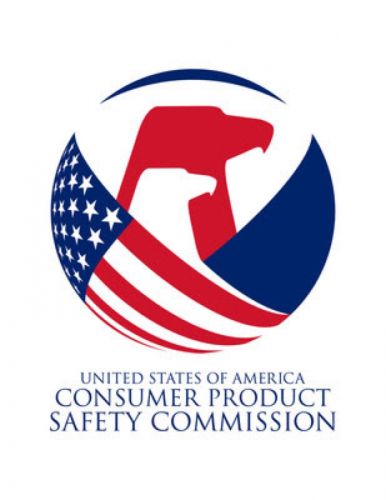WASHINGTON (BRAIN) — The Consumer Product Safety Commission urged manufacturers and importers of e-bikes and other micromobility devices to comply with relevant safety standards, including UL's 2849 standard.
The CPSC said it sent the letter (attached) to more than 2,000 manufacturers and importers on Monday.
"I am writing to urge you to ensure that the micromobility devices for consumer use that you manufacture, import, distribute, or sell in the United States have been designed, manufactured, and certified for compliance with the applicable consensus safety standards," Robert S. Kaye, the director of the CPSC's Office of Compliance and Field Operations, wrote in the letter.
While Kaye said the standards are being "urged," he also said CSPC could take enforcement action on non-compliant products. CPSC Chair Alexander Hoehn-Saric also released a statement Tuesday that called the standards "voluntary."
Kaye's letter said the applicable standards include ANSI/CAN/UL 2272 – Standard for Electrical Systems for Personal E-Mobility Devices (published February 26, 2019) and ANSI/CAN/UL 2849 – Standard for Safety for Electrical Systems for eBikes (published June 17, 2022). It said compliance with the standards must be certified from an accredited third-party certification body.
The letter said CPSC Field Operations staff would "seek corrective action as appropriate" if they encounter products that don't meet the standards.
"I urge you to review your product line immediately and ensure that all micromobility devices that you manufacture, import, distribute, or sell in the United States comply with the relevant UL standards. Failure to do so puts U.S. consumers at risk of serious harm and may result in enforcement action," Kaye wrote.
Hoehn-Saric's statement Tuesday called the UL standards voluntary:
"Today, the CPSC took an important step in our effort to improve the safety of these products by sending letters to more than 2,000 manufacturers, importers, and retailers of battery-powered micromobility products urging them to only manufacture, import, or sell products that meet applicable voluntary safety standards. These standards, developed through rigorous testing by independent organizations, aim to prevent thermal overload on lithium-ion batteries, the cause of many of these deadly fires. These standards will save lives and all e-bikes, scooters, and hoverboards should be manufactured to meet them.
"Consumers should look for products certified by independent laboratories to meet voluntary safety standards when buying e-bikes, scooters, and related equipment such as chargers and extra batteries."
The hoverboard comparison
Kaye's letter said it supersedes a Feb, 2018 letter that Kaye sent to manufacturers of hoverboards. That letter told hoverboard makers that CPSC Field Operations who encounter hoverboards that don't meet a UL standard could detain or seize the products, and if they encounter non-UL certified products they may recall them.
"Consequently, you should not manufacture, import, distribute, or sell self-balancing scooters that do not comply with the UL standard," Kaye wrote in 2018. It's notable that at the time, the UL standard had just been published, so it effectively banned all hoverboards previously manufactured.
Bosch's North American director, Claudia Wasko, told BRAIN last month that she hoped federal regulators would get more involved in e-bike standards, and said she would appreciate it if the CPSC acted on e-bikes the way it did on hoverboards.
Matt Moore, PeopleForBikes' general counsel, said the organization was surprised by the letter.
"PeopleForBikes was unaware that the CPSC intended to issue their letter at this time, and we look forward to a previously scheduled upcoming meeting with them to discuss the letter and its implications for the bicycle industry. We will let our members know what we find out," Moore said in an email to BRAIN.
Industry consultant Jay Townley said Monday's letter is not as strongly worded as the 2018 letter to hoverboard makers, which dramatically disrupted that industry. Townley said the CPSC letter is "long overdue in my opinion."
"The industry has an opportunity here," Townley said. "In effect, it dodged a bullet ...
"The bike industry in the past 20 years or more has become absolutely complacent and gotten lazy and been able to get away with low-cost and sometimes no-cost relative to its compliance and testing programs. I think it thought it could get away with that relative to the electrical systems. And you can’t, you just can’t, particularly when you’re dealing with lithium-ion."
Related:
- CPSC letter to e-bike manufacturers and importers (pdf), Dec. 20, 2022
- Statement by CPSC Chair Alexander Hoehn-Saric (pdf), Dec. 20, 2022
- CPSC press release, Dec. 20, 2022
- CPSC finds micromobility injuries rose 127% since 2017, Oct. 11, 2022
- E-bike regulation discussion an ‘eye-opener’ for industry, May 20, 2022
- Approximately none of the recent 'e-bike fires' in New York involved an e-bike, April 20, 2022
- UL publishes new e-bike standard, Jan. 14, 2020
- UL 2272 (link provided by CPSC)
- UL 2849 (link provided by CPSC)
- CPSC letter to hoverboard makers (pdf), 2018




